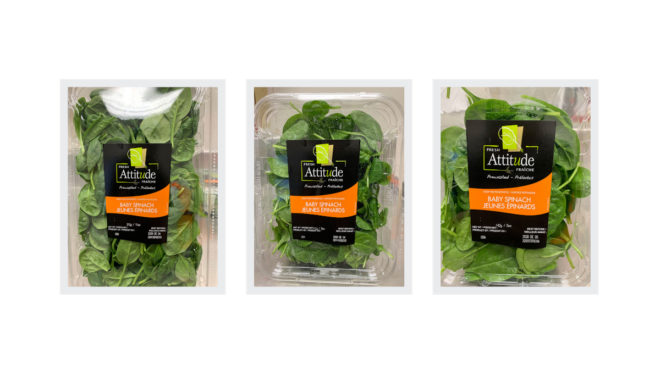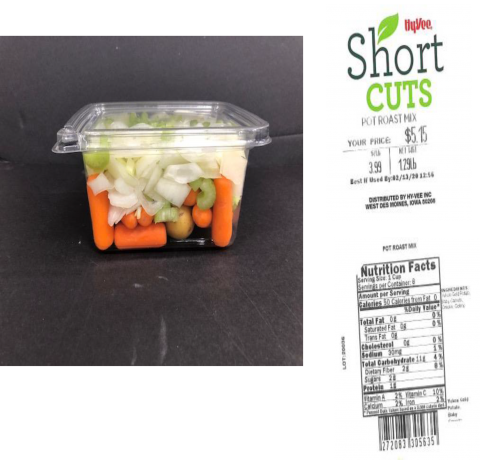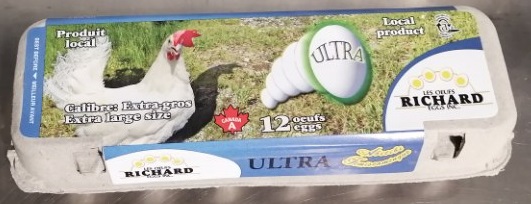The CFIA announced on its website that Vegpro International recalls Fresh Attitude brand baby spinach from the marketplace due to possible Salmonella contamination. The company triggered this recall. Vegpro distributed the recalled baby spinach in the Canadian provinces of Ontario and Quebec. The recalled spinach has best-by dates through Dec. 4-5 and is packaged in 312g and 142g. To date, there hadn’t been any reported illnesses associated with the consumption of these products. @ https://www.inspection.gc.ca/food-recall-warnings-and-allergy-alerts/2020-11-26/eng/1606439055882/1606439056179
ruth
Vegpro International is recalling Fresh Attitude brand Baby Spinach products from the marketplace due to possible Salmonella contamination.
ruth
The FDA announced on its website that Shenandoah Growers, Inc (Harrisonburg, VA), has issued a limited, voluntary recall of approximately 15,000 units in select packages due to possible health risk from Cyclospora. These were packed under branded and private label fresh-cut organic-certified basil clamshells at its Jefferson, GA facility and Harrisonburg, VA facility. The recalled products were distributed to select retail stores between 10/20/2020 and 10/30/2020 in various states, including Georgia, Tennessee, Florida, Virginia, Pennsylvania, Maryland, Connecticut, Delaware, New Jersey, New York, and Washington DC. The precautionary recall is being issued due to an isolated instance in which a package pulled by the Florida Department of Agriculture on 11/2/2020 from a retail store in Florida indicated the potential presence of Cyclospora. The products were harvested and packed nearly 4 weeks ago and should no longer be in commerce. The company has no knowledge of any illness reported or related to this product. @ https://www.fda.gov/safety/recalls-market-withdrawals-safety-alerts/shenandoah-growers-inc-issues-limited-voluntary-recall-certain-imported-organic-basil-because
Shenandoah Growers, Inc (Harrisonburg, VA) out of an abundance of caution, has issued a limited, voluntary recall of approximately 15,000 units in select packages, due to a possible health risk from Cyclospora.
ruth
Hy-Vee, Inc. (West Des Moines, Iowa, an employee-owned corporation operating more than 275 retail stores ), is voluntarily recalling two of its Hy-Vee Short Cuts vegetable mix products in eight-state region (IL, IA, KS, MN, MO, NE, SD, and WI) due to possible contamination with Listeria monocytogenes. The recalled products are Hy-Vee Short Cuts Pot Roast Mix and Hy-Vee Short Cuts Pot Roast Mix. The potential for contamination was discovered during routine safety sampling at Hy-Vee’s Short Cuts production facility. To date, no illnesses have been reported in connection with these products. @ https://www.usrecallnews.com/hy-vee-voluntarily-recalls-two-short-cuts-vegetable-mix-products-because-of-possible-health-risk/
Summary Company Announcement Date: November 24, 2020 FDA Publish Date: November 24, 2020 Product Type: Food & Beverages Reason for Announcement: Recall Reason Description Potential to be contaminated with Listeria monocytogenes Company Name: Hy-Vee, Inc. Brand Name: Brand Name(s) Product Description: Product Description Short Cuts vegetable mix products Company Announcement Hy-Vee, Inc., based in West …
ruth
Canada/Ottawa: Les Oeufs Richard Eggs Inc (Rivière-Héva, Quebec) recalled batch/lots of Les Oeufs Richard Eggs, Nutri and No Name branded Fresh Chicken Eggs from the Canadian marketplace due to suspected Salmonella contamination. Only eggs from Les Œufs Richard Eggs Inc. with lot code contains “Q29” or where there is no lot code on the package were recalled. Test results of the CFIA triggered this recall. The recalled eggs were distributed to retailers in Quebec. No illnesses were reported relating to the eggs. @ https://healthycanadians.gc.ca/recall-alert-rappel-avis/inspection/2020/74381r-eng.php
Les Œufs Richard Eggs Inc. is recalling eggs from the marketplace due to possible Salmonella contamination.




